<< Previous | Displaying results 6741-6750 of 6768 for "" | Next >>
The study of the Holocaust raises questions about how the world can recognize and respond to indications that a country is at risk for genocide or mass atrocity. While each genocide is unique, in most places where genocide occurs, there are common...
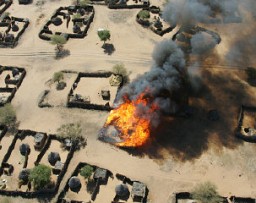
Many Europeans witnessed acts of persecution, including violence against Jews and, later, deportations. While few were aware of the full extent of the Nazi "Final Solution," this history poses difficult and fundamental questions about human behavi...
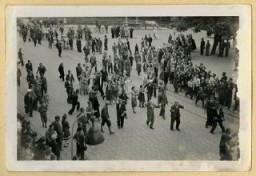
How involved in the Holocaust were German professionals and civil leaders? What were some of the motivations and pressures that led to a wide range of behavior? What indeed was the range of behavior, from complying to perpetrating? Explore...
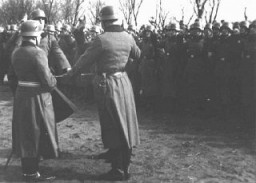
The leaders of Nazi Germany, a modern, educated society, aimed to destroy millions of men, women, and children because of their Jewish identity. Understanding this process may help us to better understand the condit...
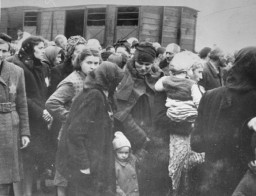
Explore this question to learn about the motivations and challenges of those who aided Jews
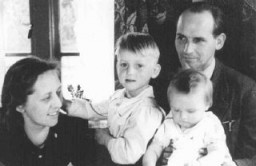
When Nazi Party leader Adolf Hitler became German chancellor on January 30, 1933, no step-by-step blueprint for the genocide of Jews as a “race” existed. After the outbreak of World War II, millions of Jews came und...

Explore this question to learn about the responses of leaders and citizens

Consideration of American responses to Nazism during the 1930s and 1940s raises questions about the responsibility to intervene in response to persecution or genocide in another country.
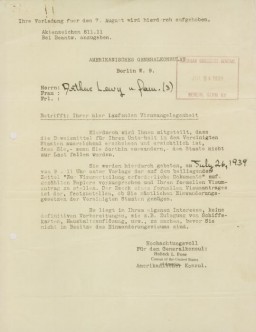
Persecution of Jews and other targeted groups was already government policy in Germany once the Nazis were in power in 1933. But following the German invasion of Poland on September 1, 1939, war provided the opportunity and motivation for more ext...
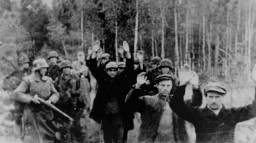
The aftermath of the Holocaust raised questions about the search for justice in the wake of mass atrocity and genocide. The World War II Allied powers provided a major, highly public model for establishing internati...
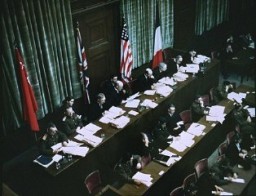
We would like to thank Crown Family Philanthropies, Abe and Ida Cooper Foundation, the Claims Conference, EVZ, and BMF for supporting the ongoing work to create content and resources for the Holocaust Encyclopedia. View the list of donor acknowledgement.